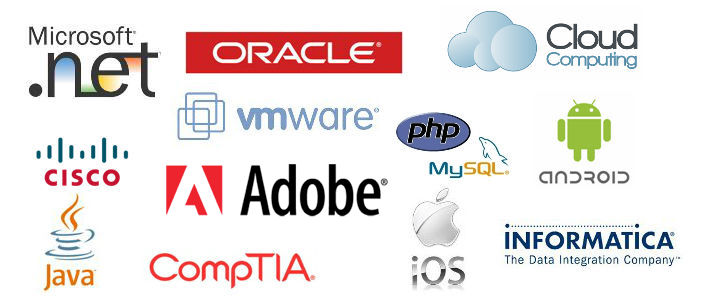JSP and Servlet Training Support
Training : +91 9672234513
Placement : +91 9672234514
Classroom & Online Training
Follow @iclasstraining
JSP and Servlet training Mumbai Reviews
JSP and Servlet training Mumbai Reviewed by Deepesh
on 2021-09-094 / 5 
Hi I am Deepesh from Mumbai. I done Django Python course from iClass Training Mumbai . Really very good institute. All institute members are well behaved and very helpful
------------
JSP and Servlet training Mumbai Reviewed by Phalgun
on 2021-09-085 / 5 
The Mockito in Mumbai placement training and the fees structure of iClass Training Mumbai is good. I just completed my Mockito course. Thanks Phalgun from Mumbai
------------
JSP and Servlet training Mumbai Reviewed by Maadhav
on 2021-09-054 / 5 
Hi ! This is Maadhav , I have done my training on CAD CAM , The environment was superb , I enjoy those days during trainings.
------------
JSP and Servlet training Mumbai Reviewed by Shakambari
on 2021-09-054 / 5 
iClass Training Mumbai in Sahar Road centre provide very good Teaching and the trainer has given notes for each and every topic. I was able to complete my DotNET LINQ in time. I even got a very good placement support from this institute at Mumbai.
------------
JSP and Servlet Training in our Branches
- JSP and Servlet in Delhi
- JSP and Servlet in Gurgaon
- JSP and Servlet in Noida
- JSP and Servlet in Kolkata
- JSP and Servlet in Chennai
- JSP and Servlet in Ahmedabad
- JSP and Servlet in Pune
- JSP and Servlet in Bangalore
- JSP and Servlet in Hyderabad
- JSP and Servlet in Coimbatore

JSP and Servlet Training in Mumbai Classroom & Online
 4.4 out of 5 based on 987 student ratings.
4.4 out of 5 based on 987 student ratings.
iClass Mumbai provides real-time and placement focused JSP and Servlet learning in mumbai . Our JSP and Servlet course includes basic to advanced level with classroom & Online Learning options. JSP and Servlet course curriculam is designed to get the job placement in reputed MNC companies in mumbai as quickly as once you complete the your JSP and Servlet course. Our JSP and Servlet trainers in mumbai are certified and experienced working professionals with hands on real time knowledge. We have designed our course content and syllabus based on students requirement to achieve everyones career goal. In our JSP and Servlet training program, you will learn to work.
iClass Mumbai offers JSP and Servlet course through online training with live one-to-one learning options. Considering covid-19 pandemic, many of our students in our iClass Mumbai learning centers, opted to Online learning mode from Classroom. This helped them to continue JSP and Servlet training Online without any delay in course completion. We offer both combination of Classroom / Instructor-led training and JSP and Servlet online training in Mumbai. Whenever you can travel, you can attend the JSP and Servlet classroom classes or choose to attend our JSP and Servlet online classes. You can also switch to Classroom from online classes without any additional course fees.
Java Server Pages or even JSP is a technology used for creating dynamic web applications. JSP page can change its content based on numerous variable items, including the identity of the consumer, the users browser form, information provided by the consumer, along with selections made by the user unlike any plain HTML page that comprises of static content. JSP provides simple maintenance when compared to servlets. The distinction between JSP and Servlet is a S servlet adds HTML code inside Java code, while JSP adds Java code inside HTML with JSP tags. JSP lets to compose HTML pages comprising tags where we can consist of strong coffee programs within it. The Internet Container transforms JSP Pages to Servlets. The Container translates a JSP page to servlet class source(.java) file and then compiles to a Java Servlet class. An individual can easily separate Presentation and Business logic using JSP as a web designer can design and upgrade JSP pages creating the presentation layer and coffee developer can create server side complex computational code without concerning the web design. The benefits of JSP include easier coding and maintenance, High Performance and Scalability. Additionally JSP is built on Java technologies, therefore it is platform independent. JSP is preferred over ASP (Active Server Pages) due to the twofold benefits. The benefits of JSP are twofold.The dynamic component is written in Java, not Visual Basic or other MS specific language, therefore it is more powerful and easier to use.Also it is portable to other operating systems and non-Microsoft Internet servers.
jsp training in mumbai, best jsp training institutes in mumbai, jsp training, jsp training center in mumbai, jsp course in mumbai, jsp certification in mumbai, jsp online courses in mumbai, jsp course fees in mumbai, jsp course online in mumbai, jsp course fee in mumbai, jsp tutorial in mumbai, online jsp training in mumbai, jsp training online in mumbai
iClass Mumbai offers JSP and Servlet training with choice of multiple training locations across mumbai. Our JSP and Servlet training centers are equipped with lab facilities and excellent infrastructure. We also provide JSP and Servlet certification training in mumbai gives clear path for our students in. Through our associated JSP and Servlet training centers, we have trained more than 1028 JSP and Servlet students and provided JSP and Servlet placement training in mumbai. Our JSP and Servlet course fees is value for money and tailor-made course fees in mumbai based on the each students training requirements. JSP and Servlet training in mumbai conducted on day time classes, weekend training classes, evening batch classes and fast track training classes.












